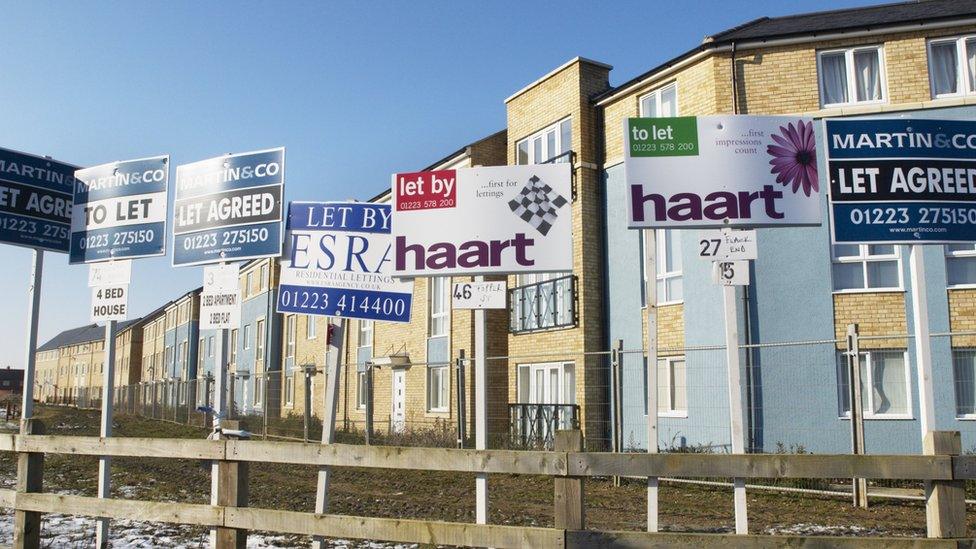Cambridgeshire mayor: £100k homes and metro likely to be stopped
- Published
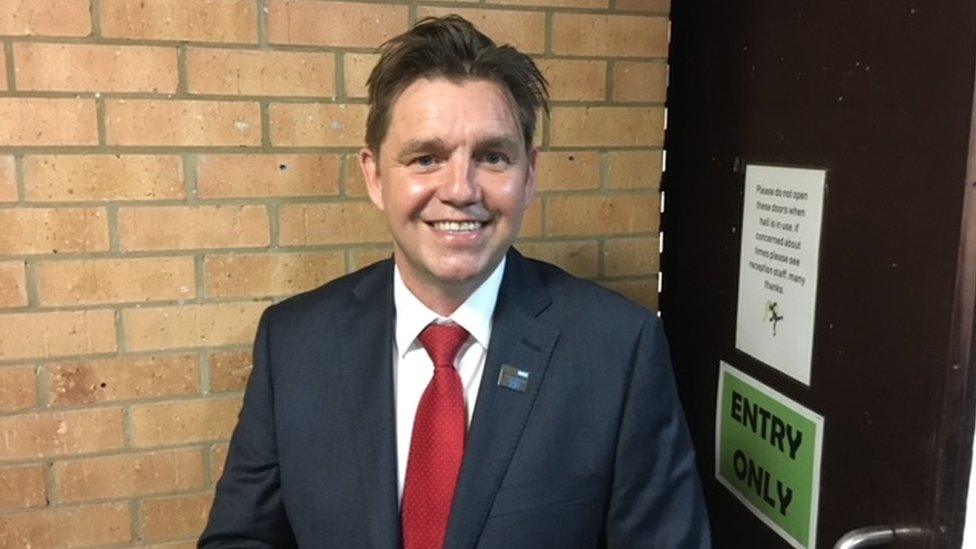
Nik Johnson admitted the win was "a bit of a surprise" shortly after he was elected mayor
Cambridgeshire and Peterborough's new mayor has said he is likely to stop work on two of his predecessor's headline policies.
Labour's Nik Johnson beat Conservative incumbent James Palmer in Thursday's local elections.
Speaking to the BBC after his victory, Mr Johnson said plans for a metro system through Cambridge would not be progressing.
It is also unlikely that the area will see more £100,000 homes built, external.
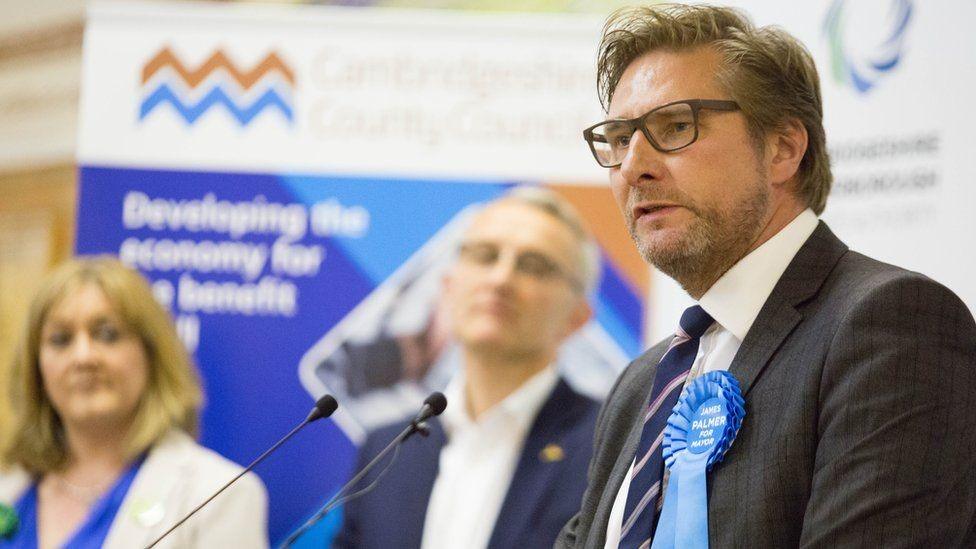
James Palmer became Cambridgeshire and Peterborough's first elected mayor in 2017
Mr Palmer, who was elected in 2017, had championed the idea of a Cambridgeshire Autonomous Metro or CAM, which it was reported would cost between £2bn and £4bn and include tunnels under Cambridge.
A document released by the Cambridgeshire and Peterborough Combined Authority, external in July 2020 said it would "overcome congestion challenges, unlock housing and protect the local environment".
But shortly after winning, Mr Johnson said: "I'm not making any plans for CAM metro.
"I need to obviously sit with the team that are currently working there, but I don't see it progressing."
The children's doctor said he was "always concerned about the model" for building homes for sale at £100,000.
"There will be people who are actually expecting to move into homes," he added.
"I recognise that people have been made promises - I want to honour some promises made by the previous combined authority and I think we need to look at that."
However, Mr Johnson thought it "unlikely" that more £100,000 homes would be built by the combined authority.
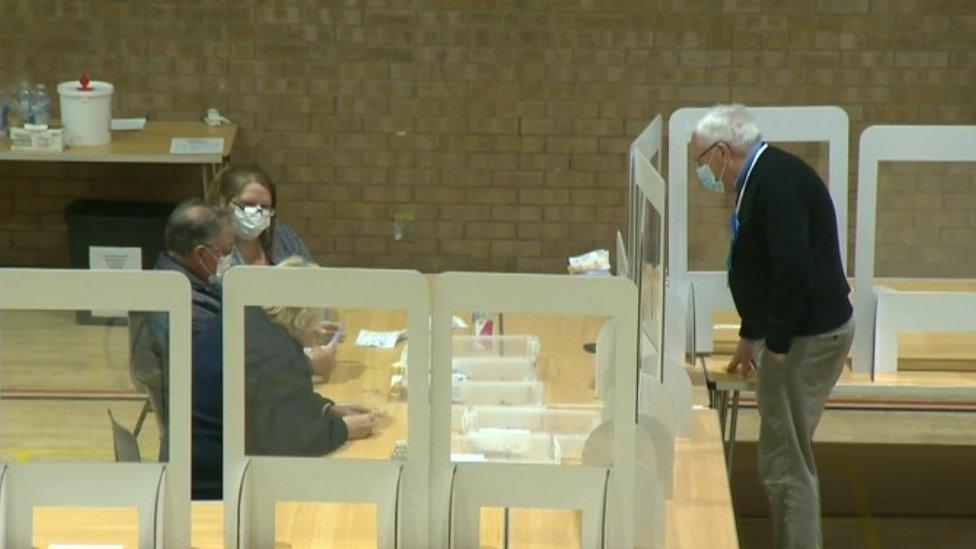
Nik Johnson picked up enough votes in the second round of voting to become the new mayor
Mr Palmer's affordable homes plan was criticised by a government minister in March, who said it was delivering "insufficient.. progress" and that "value for money" was "below our expectations".
The mayor and combined authority have responsibility over budgets for housing, infrastructure, public transport and adult education.
Mr Johnson, who works at Hinchingbrooke Hospital in Huntingdon and lives in St Neots, said he would like bus franchising brought in "at the earliest possible opportunity".
This would see the combined authority take greater control over buses and could mean more profitable routes cross-subsidising those which run at a loss.
He also praised Mr Palmer's work to open a new university in Peterborough.
"James did a good job of getting Peterborough University," he said.
"When we get Peterborough University opened, I hope he joins me when we welcome the new students and he should be part of that."
Three candidates stood to be mayor of Cambridgeshire and Peterborough, including Liberal Democrat Aidan Van de Weyer.
Voters were able to choose their preferred candidate, as well as their second choice.
Mr Palmer won more first preference votes in the ballot but did not get enough to avoid second preference votes being counted.
Mr Van de Weyer had fewest first preferences so was eliminated after the first round.
His ballots were then recounted and the second preferences added to other candidates' totals.
Mr Johnson won with 113,994 votes, 5,799 more than his rival.

POSTCODE SEARCH: What are the results in your area?
ENGLAND: Election results, external


Find BBC News: East of England on Facebook, external, Instagram, external and Twitter, external. If you have a story suggestion email eastofenglandnews@bbc.co.uk, external
- Published9 May 2021

- Published12 March 2021
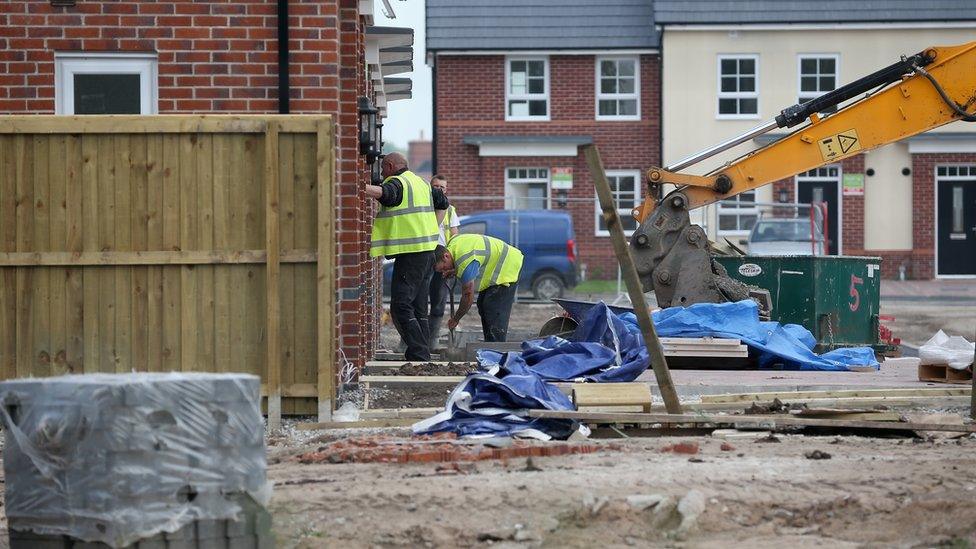
- Published26 September 2019
